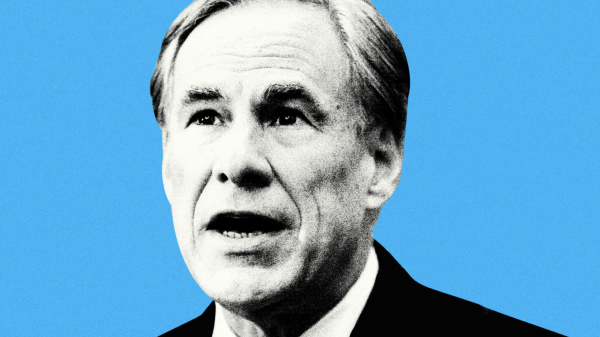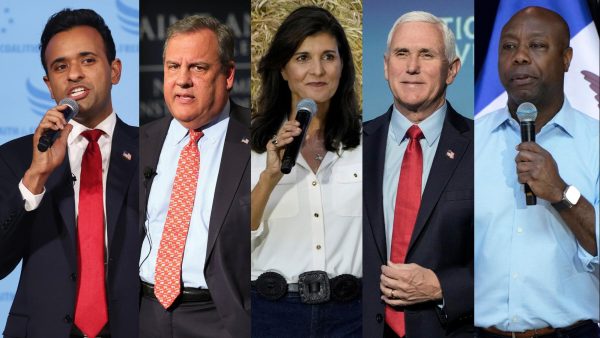For Trump’s Environmental Policy, Elephants, Elephants, Elephants, but Little Else
December 22, 2017
When Donald Trump learned about his administration’s efforts to roll back an Obama-era law that banned hunters from bringing elephant “trophies” from Africa, he was livid. The next day on Twitter, he called it a “horror” that “in no way helped conservation efforts.” Was it Donald Trump’s love for environmental conservation? Probably not, given all he has done to repeal climate change and pollution-related regulations. His love for the symbol of the Republican Party? Indeed, it would seem counterintuitive if a Republican president encouraged elephant-killing. Perhaps it was a childhood visit to the zoo. Who knows? The interesting thing is, Donald Trump found the one environmental regulation he prefers to be kept untouched. Good for him. But more than that, good for the elephants.
The law, enforced in 2014, banned so-called “elephant trophies,” which can be any part of an elephant—tails and tusks are usually popular parts to bring home. The interior department followed up in 2016 with a near-total ban on the import of ivory, a luxury material made from elephant tusks and rhino horns. The Trump administration’s initial move to allow elephant trophies come home shocked many, as did Trump’s strange backtracking on twitter. “I think many people were confused why Trump allowed people to bring back elephant trophies before immediately condemning them,” says Rayhan Murad ’19, who struggles to understand Trump’s quick flip-flop on the issue. “But at the same time, those same people expected the knee-jerk reaction of Trump’s administration nowadays: repeal anything with Obama’s name on it.” Murad, referring to President Trump’s crusade to erase Obama’s legacy, might have a point. Since January 21st, the Trump administration has deregulated vast swathes of American bureaucratic institutions. Some of his actions are relegated to the financial industry, like when Trump and Congress stripped away an Obama-era law that allowed consumers to form class-action lawsuits against financial companies. Although Trump has carried out Steve Bannon’s “deconstruction of the administrative state” in every policy area, much of his deregulatory initiatives have been aimed towards the environment.
As one of his first actions as president, Trump authorized the construction of the Keystone XL pipeline, which had been put on hold by Obama; even amidst recent news that the pipeline spilled over 200000 gallons of crude oil, Trump remains steadfast in his support for it. He has also remained vigorously opposed to key parts of Obama’s climate change policies. He rescinded the United States’ commitment to the Paris Climate Accords, and tore down Obama’s Clean Power Plan, which had set limits on the amount of carbon dioxide power plants could emit. “President Trump just doesn’t have a good record on the environment,” states Rohan Jinturkar ‘19. “He sees regulations as liberal efforts to destroy American industries like the coal-mining sector.” Trump’s hostility to action on climate change shows no bounds. In a remarkable display of pettiness and ignorance, Trump sent a delegation to a recent climate change conference in Switzerland so they could extol the merits of coal onto the audience members (who, by no one’s surprise, left the auditorium when the Americans started their presentation). To this date, America is the only country not part of the Paris agreement. Syria—yes, even war-torn Syria—has joined. Many credit his decision to his climate denial, others to his disdain for multinational agreements and organizations—from trade deals to NATO to the EU.
That brings us back to the elephants. While conservatives have cheered the rollbacks of much of these environmental regulations and accords, elephants remain off-limits. Conservative talk show commentator and Tea Party darling Laura Ingraham, herself safari enthusiast, called the ruling “absurd”. Michael Savage and Mike Cernovich, popular right-wing talk radio hosts, denounced the ruling from the administration they’re usually loath to criticize. Cernovich queried on twitter, “do brave men hunt elephants?”
He might as well have asked that to the president’s son, Donald Trump Jr., who has been widely condemned for posing, with a grin on his mouth and a cut-off elephant tail in his hand, next to the elephant he so bravely put down. Another picture shows him and his brother Eric posing next to a dead leopard they also killed from safe cover. Trump, according to the Washington Post, publicly disapproved of the photos back in 2012. Five years later, as President of the United States, Trump has shown surprising consistency when it comes to big-game hunting. It seems that elephants have carved out a soft spot in the heart of Donald Trump. For that, at least, we can be thankful.




